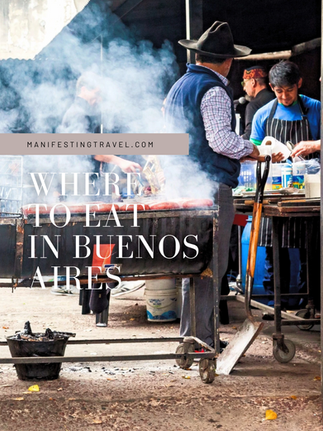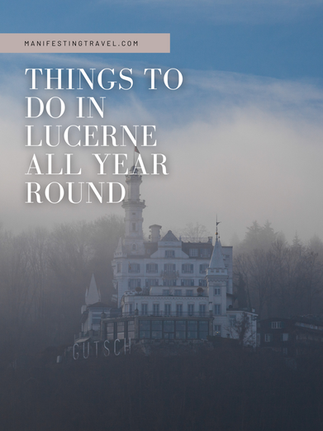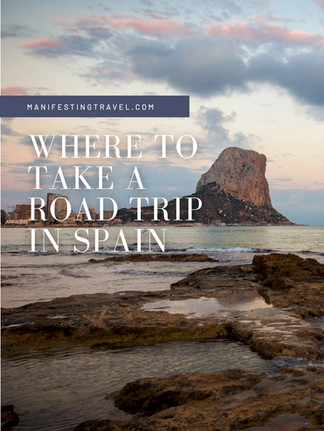
Lucerne, or Luzern in Swiss German, is beyond picturesque; it’s quaint, quiet, charming and just about every other cozy adjective you can find to describe this small Swiss city. You’ll wind through antique cobblestone streets, spilling out into small squares that are anchored by trickling fountains and hand-painted facades on each pastel building. Medieval bridges crisscross a glassy greenish-blue lake with jutting alpine peaks everywhere you turn. What’s not to love? For us, nothing.
But it should be noted that it’s also a little sleepy. We spent three days there, and honestly, we probably could’ve seen all the sites in a day or two. But the point of traveling isn’t to rush through your experiences, right? Lucerne is a strolling city, it’s a place to take your time and pop into the shops lining the River Reuss, to have a leisurely lakeside lunch or enjoy a chocolate tasting. It’s a perfect destination for people who want to take their time and savor their sublime surroundings, both natural and manmade.

Is Lucerne worth visiting?
Yes, Lucerne is absolutely worth visiting, but your personal interests will dictate how much time you spend there. Switzerland, as a country, has a bit of a reputation for being boring, which in our minds, is a little unfair. While it’s not exactly known for its riveting nightlife, fiery culture and passionate entertainment options, there are still plenty of things to see and do, especially if you’re an outdoorsy person. And honestly, that's why I created this Lucerne, Switzerland travel guide. To prove that statement.
Lucerne’s scenery and historical preservation alone make it worth visiting, even if you’re just passing through and stop by for one to two days. But if a slower pace that includes long afternoons filled with historical landmarks, shopping, cafés and walks along the promenade seems a little yawn-inducing, don’t stay longer than two full days.

How to get to Lucerne
Switzerland is a very small country, making it relatively easy to get anywhere you want to go in a short amount of time, even if you’re navigating the mountains and switchbacks. Lucerne is centrally located, just a quick 32 miles (52 kilometers) from Zurich and roughly 60 miles (100 kilometers) from Bern. If you arrive by train, which is our preferred method, it’s only a 50-minute ride from Zurich and a little over an hour from Bern.
If you take the trains, you don’t have to worry about the road conditions in the winter, but during summer, this would be a great country to see by car. Having the flexibility to stop and explore nearby villages like Lungern and Isenthal would definitely be worth it. There are so many pristine villages and mountainscapes to explore with quintessential views like roaming cattle and sheep, waterfalls and half-timbered homes set against the Alps.

What is Lucerne known for?
Lucerne is known for its alpine beauty and historical preservation from the Middle Ages. It is nestled at the foot of the Mount Pilatus massif in central Switzerland at the top end of Lake Lucerne. In the summer, it’s filled with colorful flower boxes, green grasses and swans swimming on the lake. In the winter, the surrounding mountain sides are snow capped and sometimes there’s a misty fog draped across the town, swallowing the medieval architecture, and truly giving it a surreal, almost Hollywood movie-like feel.
Lucerne is renowned for its stunning old town, or Altstadt, and the preserved 14th century buildings and bridges throughout. Specifically a wooden covered bridge, the Kapellbrücke or Chapel Bridge, that was built in 1333 and connects the old town with the right bank of the River Reuss. It’s 672 ft (204.7 m) long and lined with interior triangular panels that were hand painted to depict the town’s heritage over the centuries.

What to do in Lucerne
If you’re a history buff, you’re going to love Lucerne. The city was founded in the 8th century, 1178 (to be exact) when it was just a small fishing village. What’s truly incredible is that it’s so well preserved for being more than 900 years old. From the city’s fortification wall, the Museggmauer and its imposing watch towers to the Kapellbrücke (or Chapel Bridge) and the Lion of Lucerne, each famous site is steeped in centuries of the city’s rich history.
Even if you’re not really into history, Lucerne is centrally located to have just about every outdoor adventure you could possibly want. Skiing, snowboarding, snowshoeing, sledding and more in the winter, hiking, cycling, paragliding and water sports during the summer months. There really is something for everyone.

What to know about the weather in Lucerne
Sometimes you hit the weather jackpot, and everything is crisp and clear, a true Swiss masterpiece. Then other times, like the time we visited in December, you get smacked in the face with a thick wall of fog and cloud cover, and it prohibits you from truly experiencing the place in all its wonder.
Lots of people don’t like to travel during the winter for this reason, but despite the misty evenings and cloudy days that covered most of the glorious mountain ranges cradling Lucerne, it was still utterly beautiful. In fact, Switzerland is basically the most perfect winter destination on the planet, but it’s not always going to be snow sparkling on the mountain peaks. It’s still worth it. And if you’re interested in why traveling during the holidays will be one of the single best things you do for yourself, you won't want to miss this.

Where to stay in Lucerne
The best place to stay in Lucerne is the Altstadt neighborhood. Its charming streets are lined with colorful buildings and hand-painted facades from as early as 1199. It’s hard to find places this old that have been lovingly restored and still retain their historical charm the way this neighborhood does.
Even the town hall nearby was built in the early 1600s so this is truly the place to feel the Swiss culture and history in all its glory. It’s also centrally located to all the major attractions, shopping and restaurants. If you stay in the old town area, you truly don’t even need to get on the bus or take rideshares because it’s extremely walkable.

Where to eat in Lucerne
The food is good in Lucerne, and there are lots of places to get traditional Swiss German cuisine. The closest Michelin starred restaurant is a quick 10-minute drive from Lucerne’s city center and is the stunning lakeside Seerestaurant Belvédère in nearby Hergiswil.
But places in town like the Old Swiss House, Restaurant Balances and Drei Könige have all been recognized by the Michelin Guide for their commitment to quality and excellence. Traditional Swiss food (in theory) can be very “stick-to-your-ribs,” with savory stews, hearty potatoes served in a multitude of ways, rich cheeses, heavy creams, different meats and breads. Think of it like this, if you’re subsisting in the dead of winter in the Alps, your meals will likely be more high-caloric in nature, so they don’t burn off as quickly. Makes sense, right? The good news is, you’ll likely be walking everywhere so it’ll balance out all that yummy, filling goodness.
While it’s important to experience a culture through the culinary staples of the region, if you ever feel like you need to change it up a bit and want a variety of cuisines, there are several delicious places to choose from. Restaurants like Pikante Peruvian Cuisine, Thai Garden and Restaurant La Cucina are great and deserve to be checked out. There are also a few plant-based options to choose from, like the highly rated Karl’s Kraut.
Click here for more culinary adventures
Where to drink in Lucerne
Switzerland enjoys a dual identity in the booze and spirits department, recognizing in equal parts their love of both beer and wine, although some believe wine pulls just a little further ahead. If you’ve never heard of Swiss wines before, there’s a very good reason for that. Only roughly 2% of all wines made in Switzerland are exported, and they don’t go very far, just a little north to neighboring Germany. Because of the small production sizes, the Swiss like to keep their wines to themselves. Not that anyone could blame them, it’s delicious. And the same pretty much goes for beer.
Switzerland has a long and storied history with beer dating back to the 9th century when monks were brewing it in monasteries. Each year, Switzerland brings a home blue ribbon in the World Beer Awards. In 2021, it was for the World's Best Specialty Steam beer and in 2020, they took the title of the World's Best Framboise with a vintage sour beer. So where can you find places to sip the nation’s elixirs in Lucerne? For breweries and beer halls try Mr. Pickwick Pub and Bierliebe & Friends, for swanky cocktails and upscale vibes try Shine, Karel Korner (when it reopens) and Das Weisse Schaf, and last but certainly not least head to Daniele, La Bonne Cave and Storchen for wine bars with great selections.
love this Lucerne, Switzerland Travel Guide?
Check out more things to do in Europe.

Ashley Oñoz-Wright has been a travel writer and editor based in Las Vegas, NV for the last ten years. Her work has been featured in Manifesting Travel, Modern Luxury, Sophisticated Living, Greenspun Media Group, Vegas.com and LasVegas.com. She holds a degree in Sociology & Anthropology from DePauw University.












